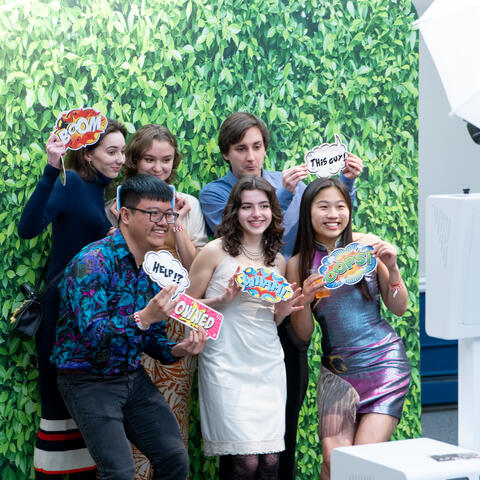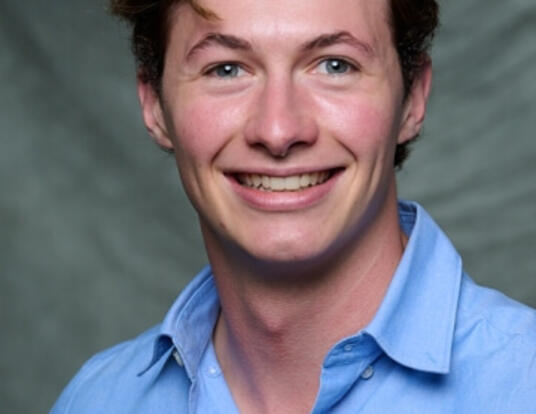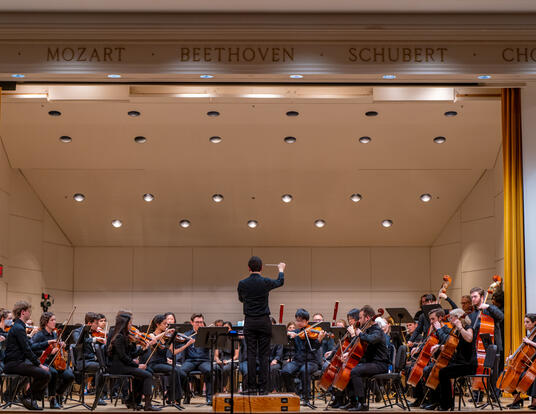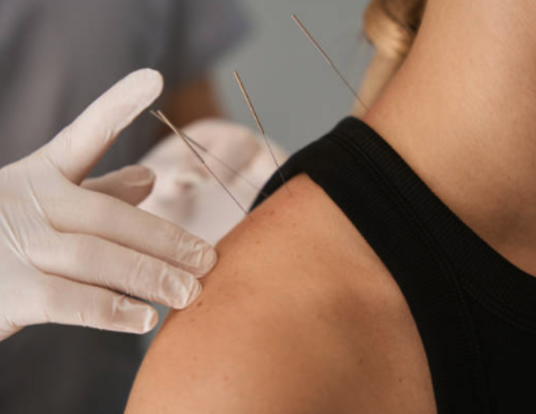A Passion for Access
New dean of admissions and financial aid focused on diversity, affordability
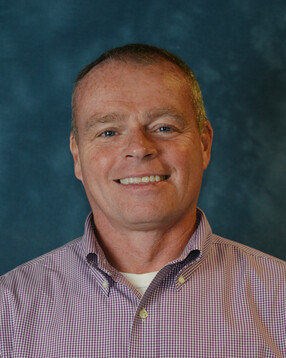
When Bob Coughlin joins Harvard’s Graduate School of Arts and Sciences (GSAS) in January 2023 as dean for admissions and financial aid, it will be a homecoming of sorts. Currently the director of financial aid at Wesleyan University, Coughlin began his career at GSAS as a junior admissions and financial aid officer after working in Harvard’s Office of General Counsel and the Department of History as a coordinator of graduate studies. Coughlin’s 30 years of experience in admissions and financial aid include time at Harvard Divinity School (HDS), where he was associate director of financial aid, and Harvard Medical School (HMS), where he was director. In this interview with GSAS Communications, he talks about his passion for improving access to higher education, the need for admissions to work closely with the Office of Equity, Diversity, Inclusion & Belonging (EDIB), and what’s changed since he started his career at GSAS in the 1990s.
Why did you want to come back to Harvard after leaving for Wesleyan?
Accessibility and affordability in education are near and dear to my heart. After serving the graduate community for my entire professional life, I wanted to work more closely with undergraduate students. Wesleyan gave me that opportunity.
That said, graduate education is at the core of my being. Harvard has shaped my professional life. Most of my friendships and personal connections are here—particularly at GSAS. So, having the opportunity to serve an organization with which I'm so intimately connected really is an honor for me.
Your title at Wesleyan is director of financial aid. At GSAS, you’ll be in charge of admissions as well. How has your career prepared you for these new responsibilities?
Admissions [has] always been part of my work. Even going back 30 years ago when I was a coordinator of graduate studies in the Department of History, I participated in the admissions process, attending meetings and reading applications. And then, back in the day at GSAS, the financial aid officers did a lot of the recruitment for master’s and PhD programs. That carried over when I was at the Divinity School.
Here at Wesleyan, I actually do participate in the interviewing and selection of our cohort of students who are military veterans. And in general, there’s a close relationship between admissions and financial aid. In fact, my group reports to admissions, and I sit on the enrollment management leadership team.
All that said, one of the appealing prospects of the job at GSAS is having more involvement with admissions and at a different level—particularly when it comes to ensuring that we attract and enroll an academically strong and diverse student body. Also, I’m looking forward to continuing to improve the admissions process, the experience for students, and the service we provide to departments.
While at Harvard previously, you worked in financial aid at GSAS, HDS, and HMS. How did your time at different parts of the University prepare you for this job?
Harvard's a unique institution. The complexity of the organization is very different than other schools—even major research universities. To thrive at a place like GSAS, with students who study across Harvard, you have to understand how schools operate differently and how they interact with each other—and with the central administration.
I got that understanding when I first worked at GSAS many years ago. I learned the importance of effective communication and messaging, which are critical to maintaining the integrity of our programs. HDS gave me a greater sensitivity to the financial pressures that schools face and taught me to develop strategies to attract students despite those constraints. And then at HMS, I learned the importance of building relationships with students and with the faculty who were administrators of the programs—and of being transparent about the financial aid process. That experience taught me a lot about student needs.
You were a financial aid officer at GSAS from 1994 to 1997. That was a long time ago, but from what you can remember, how have the resources and challenges for admissions and financial aid changed since then? Which ones have carried over?
One thing that's definitely different is that there are more programs! There are more cross-faculty programs and more degree programs too. The range of disciplines that students explore here is truly astonishing.
When I was at GSAS in the 1990s, there wasn't an Office of Equity, Diversity, Inclusion & Belonging. I think it’s critical to ensure that we admit students who will contribute to a diverse and vibrant community—and that we dedicate resources to that effort. It’s one of the changes I’m most glad to see.
Another big difference is the advancement of technology. When I started, everything was paper-based. There were entire rooms filled with paper! Digital technology makes the admissions process much less cumbersome and allows us to provide better service to prospective and current students. Technology can also help with access, but that’s still a big challenge across higher education. How do we bring in a diverse class? How do we get the message out to students from marginalized communities that Harvard is attainable? The University’s reputation can be a bit of a double-edged sword. It attracts many people but deters some too. That’s why we have to do all we can to communicate that people from all backgrounds and identities are welcome here.
Finally, what are you most looking forward to about the job? What would you like to accomplish in the next, say, five years?
What’s most exciting to me is being part of the ongoing effort to increase access and affordability at GSAS. That’s where my focus will be during my first years on the job. I’m already thinking a lot about how to remove barriers on the financial aid side. I’m eager to understand better where the pinch points are for students and what solutions we can put in place.
I’m also looking forward to strategizing with EDIB. That is going to be critical, especially depending on what happens with the admissions case before the Supreme Court. Diversity is deeply intertwined with GSAS’s mission, so that’s an area that will demand attention immediately.
I do think there are ways that we can use technology to streamline the experience for applicants so it's not as confusing and they don’t have information coming at them from several different sources.
Finally, one thing that gives me a lot of enjoyment is the thought of working with the talented team at GSAS. I'm looking forward to supporting them and working with people that put students at the center of all they do.
Photo courtesy of Bob Coughlin
Get the Latest Updates
Join Our Newsletter
Subscribe to Colloquy Podcast
Simplecast


